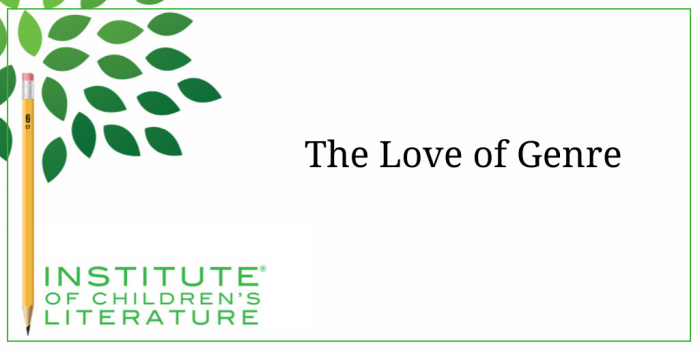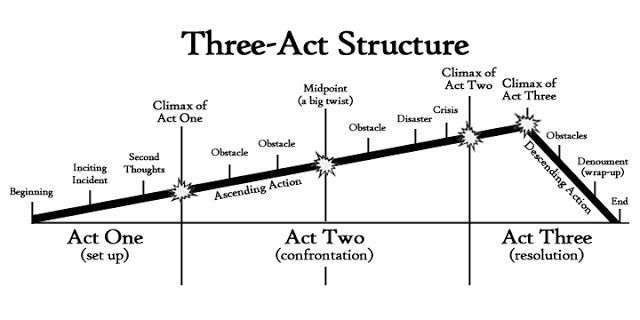1000 N. West Street #1200, Wilmington, DE 19801
© 2024 Direct Learning Systems, Inc. All rights reserved.

Genre, according to Google’s dictionary function, is “a category of artistic composition, as in music or literature, characterized by similarities in form, style, or subject matter.”

Anyone who has been writing for children for any length of time knows that folks have a tendency to see writers for children as dabblers and writers for adults as real writers. In fact, many children’s writers have flatly been asked when they’re going to do a real book. And within children’s writing, book authors are definitely given more respect than magazine writers. And if you write books, well, writing the more action-oriented, plot driven genre are definitely seen as less valuable than the character-driven, deeply emotional novels. But like any class system, this one is unfair, and just because other people have bought into it, doesn’t mean we have to.
But, but, but aren’t character-driven, deeply emotional novels just better than those others? They tend to get more awards, doesn’t that mean something? Awards are a whole different kettle of fish, and none of us are going to be very happy if we spend a lot of time chasing awards. Instead, the happiest writer is the one who chases the story that interests and excites them. For some of us, that’s a low-brow genre novel. So let’s take a moment to sing the praises of the low-brow novel.
 Genre is Fun
Genre is FunWriting any novel is work. It simply takes time and energy and focus to put 20 to 1,000 thousand words down on the page in a lively and interesting way. It takes time to shape plot and make it clean. It takes time to polish. Genre novels often don’t require the years of tinkering and soul searching that I’ve heard some literary novel writers speak of, but they are a sizable investment. They’re not finger painting. They’re work. But they’re incredibly enjoyable work because genre novels let you play with your imagination.
The best genre novels show a lot of this kind of mental playtime as the author develops a new world and a new kind of science for science fiction and fantasy, or pulls a new kind of shambling monster from the depths of their childhood imagination for horror. It lets us laugh out loud over life turned ridiculous for humor. It lets us fall in love again for romance. While writing deeply emotional, soul-wrenching stuff is draining, genre can be invigorating. It’s like literary golf: a bit of exercise, a little fibbing, bursts of frustration, but ultimately a good time on a nice day with friends.
Genre novels give a writer freedom within form, and that form acts as a kind of safety net for exploring new ways to look at plot or new ways to explore character. You know you won’t get too lost because the requirements of the genre help keep you on track. When writing a mystery, for instance, you might create a hugely entertaining character but you won’t be as inclined to wander off and let the character take over too much because you still have a job to do. You have to find the killer or recover the jewels or bring the kidnapped kid home.

If you’re writing a romance novel, you know you’re going to have two people who meet. And you’ll need to decide if they like one another right away or if they find one another less than appealing. If they like one another right away, you’ll need to plop in a big stinky problem to keep them apart. And then another one. And another. And you’ll also have to motivate the characters to overcome the problems, because ultimately you’re going to need to get these two together. And that simple understanding, that eventually you’re going to need to get these two together, will help you in plot building because you know where you’re going.
One amazing freedom within genre is the freedom to mash them together. You can set a horror story in space. You can create a bumbling detective who pursues a mystery in humorous ways. You can write a romance novel between a fairy and an ogre. You can mash genres together so that you can borrow bits from each. You can twist and turn genre constructs to look at them in new ways. Genre can give birth to subgenre that become important in their own right. The huge epic fantasy fell in love with the Noir detective novel and gave birth to urban fantasy with its smaller stories and darker contemporary urban settings. The horror novel bumped into the romance novel and the paranormal genre was born. Genre has that flexibility and might allow you to create the hot mash-up for the future, and don’t be confused: genre is hot.
 Genre is Wildly Popular
Genre is Wildly PopularOne of the realities of self-publishing is that those who make a lot of money nearly always write genre. This is because the consumers of genre novels like mystery, thrillers, paranormal, horror, and romance, read a lot of books. Genre readers tend to be incredibly voracious readers. As a result, they’re constantly hungry for new novels. In fact, this is so true that some genre have led to publisher specialization, publishers who have no interest in books outside that genre. This leads to publishers who are especially good at delivering books straight to those hungry readers.
Speaking of selling straight to hungry readers, genre is also the way some self-published authors have become rich. The bulk of self-published authors making a living with their books are writing genre. The interesting thing about self-publishing is that it often serves those readers who are still passionate about a specific genre after the big publishers have declared that genre “dead.” So when the big publishers moved on from vampire novels, the folks who loved reading vampire novels turned to self-published books to feed that interest.
Not everyone will be interested in writing a genre novel. If you’re not, and if you don’t read genre novels (or watch genre TV or go see genre movies) then this is probably not a good option for you. Genre novels simply don’t work if you can’t have fun in the creation of them. Even the most serious of the genre novels tend to reflect a certain spirit of fun in the writing, plotting and characterization. But if you’ve ever fallen in love with a cozy mystery, or held your breath reading a horror novel, or imagined fairies in your garden, maybe genre could be an option for you. But they’re a bit like potato chips. Once you write one, you may find you just can’t stop.
With over 100 books in publication, Jan Fields writes both chapter books for children and mystery novels for adults. She’s also known for a variety of experiences teaching writing, from one session SCBWI events to lengthier Highlights Foundation workshops to these blog posts for the Institute of Children’s Literature. As a former ICL instructor, Jan enjoys equipping writers for success in whatever way she can.
1000 N. West Street #1200, Wilmington, DE 19801
© 2024 Direct Learning Systems, Inc. All rights reserved.
1000 N. West Street #1200, Wilmington, DE 19801
© 2024 Direct Learning Systems, Inc. All rights reserved.
1000 N. West Street #1200, Wilmington, DE 19801
© 2024 Direct Learning Systems, Inc. All rights reserved.
1000 N. West Street #1200, Wilmington, DE 19801
© 2024 Direct Learning Systems, Inc. All rights reserved.

1000 N. West Street #1200, Wilmington, DE 19801
© 2025 Direct Learning Systems, Inc. All rights reserved.

1000 N. West Street #1200, Wilmington, DE 19801
©2025 Direct Learning Systems, Inc. All rights reserved. Privacy Policy.
4 Comments